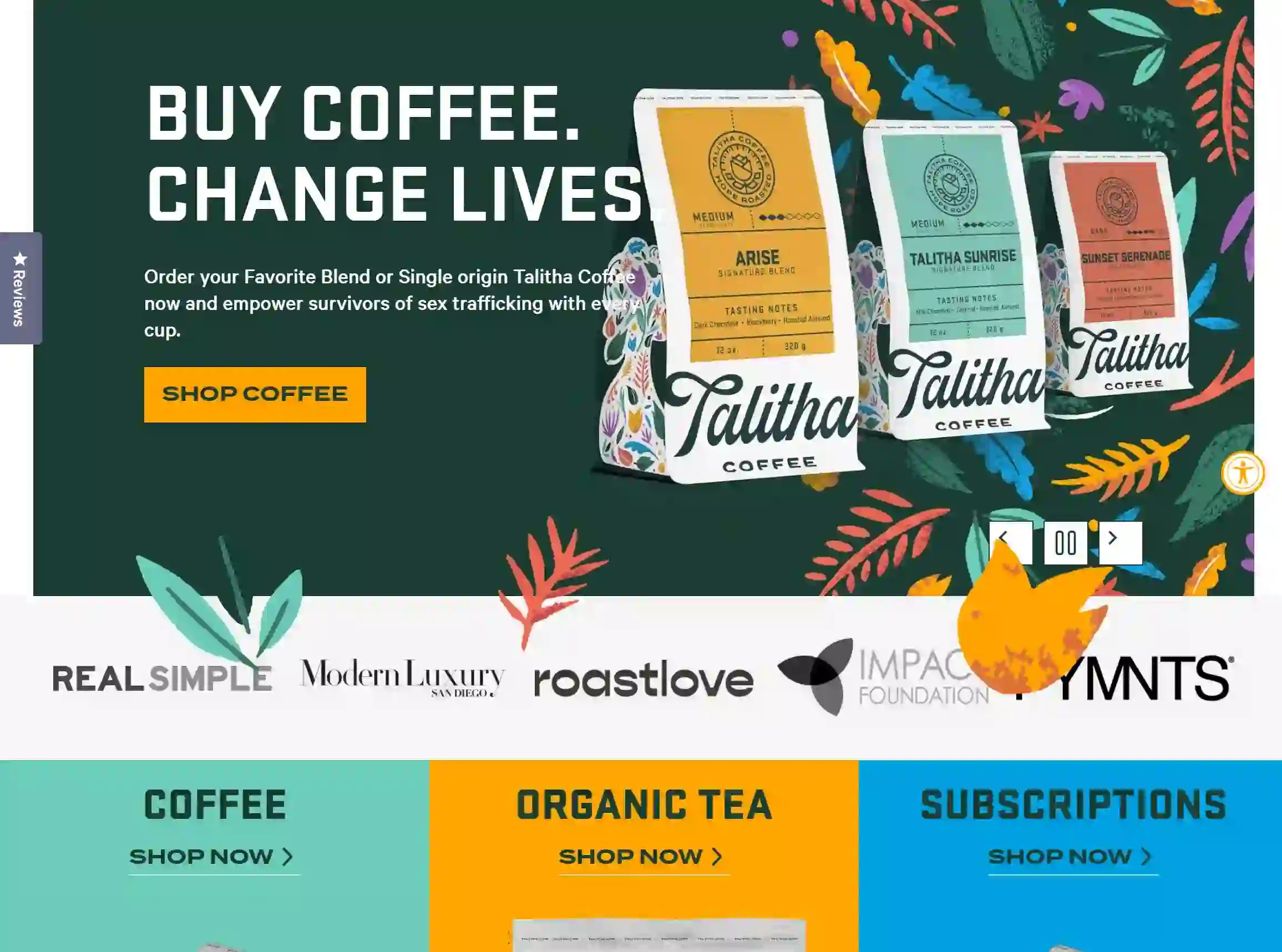What Does ‘Ethically Sourced Coffee’ Really Mean?



And How Do You Know if It’s in Your Cup?
When people say “I want a good cup of coffee”, they might not just be talking about the taste.
Yes, the quality of beans and the roasting and preparation process matter, but “good” also refers to how the coffee is grown, and how the people involved in producing coffee are treated.

But what exactly is ethically sourced coffee? Where can you find it? And how can you trust cafes and coffee brands when they claim that they’re using it?
Our coffee connoisseurs (and community champions) break down ethically sourced coffee below.
What Is ‘Ethically Sourced Coffee’?
Ethically sourced coffee is coffee that has been produced under specific conditions that look after coffee workers and the environment.
These conditions include:
-
Fair wages for coffee farmers and workers
-
No child or forced labor
-
Safe working conditions
-
Sustainable farming measures
-
Community investment (e.g., in schools, healthcare, training programs for the local area where coffee is grown)
-
Transparent supply chains
-
Certification to confirm compliance with ethical standards
The scale of the global coffee industry means that there are many opportunities to exploit the people involved in growing and trading coffee. It also means that how coffee is grown can lead to irreversible damage to the planet.
The human, environmental, and economic benefits
Ethically sourced coffee beans must be produced and handled by people who have a decent standard of living and who work in safety. When you buy and drink this type of coffee, you actively support the livelihood and dignity of these people, plus a fairer overall coffee landscape.
Beyond good pay and working conditions, ethically sourced coffee must also invest in the communities involved in, or around, coffee production. Money and resources from sales of the coffee go back into projects for schools, healthcare, training programs and more that meet and develop the needs of the local community.
Finally, coffee that is truly ethically sourced is grown in conditions that preserve biodiversity and combat climate change. For example, using organic practices, maintaining soil health and prioritizing minimum water consumption and minimal pesticide use. These steps not only protect nature and the future of growing coffee, they contribute to higher quality coffee beans.
How Do You Know if Coffee Is Ethically Sourced?
There are a number of ways to check that coffee brands are really ticking the boxes to be ethically sourced.

First, look for certification labels from entities like Fair Trade, Rainforest Alliance and USDA Organic. These are established, trusted organizations that only appear on coffee packaging when the brand has been vetted for certain working and environmental conditions.
The Fair Trade certification signals that farmers earn a living wage, the Rainforest Alliance confirms worker welfare and eco-friendly farming, and USDA Organic guarantees chemical-free farming.
There’s debate whether these stamps are sufficient to class coffee as ethically sourced. The certifications by themselves don’t cover the whole spectrum – for example, USDA organic doesn’t account for working conditions. However, they are a seal of confidence that the coffee achieves the set standards of the certification it has.
Alongside recognizable certifications, any ethically sourced coffee brand should be transparent about what they do to earn the title. Look for companies that are open about:
-
The names and locations of the farms they source coffee from
-
Profiles of farmers and community members/organizations they partner with
-
How much they pay farmers (and what the minimum wage is for the nation they operate in)
-
Details about their supply chain, like how coffee is transported and what type of packaging they use
-
Sustainability reports or audits about their business from verified third-parties
-
Evidence of projects they fund/support within the coffee industry or around the farms they work with
Because it can involve more work and investment, most companies that really use ethically sourced coffee will naturally integrate it into their brand identity. They will celebrate the people they work with and act on values that promote safety, equality and opportunity in the coffee industry.
What Are the Long-term Impacts of Ethically Sourced Coffee?
In the United States alone, people drink one average three cups of coffee a day. Where and how it gets that coffee has a big impact on the world.
Small farms make up nearly 80% of global coffee producers, and they contribute to around 60% of the global coffee supply. Ethically sourced coffee gives these farms and workers an economic foundation to build atop of: they have liveable wages and access to partnerships that can help them expand.
The result is that more people can (and want to) work in coffee, and can innovate to make the industry better.
Investment in the communities around coffee farms also helps develop typically low-income or rural areas. The populations there – whether they work in coffee or not – benefit from updated resources and improved education, and they can enjoy a higher quality of life in general.
In terms of the environment, ethically sourced coffee adds to regenerative efforts that preserve the earth and wildlife and reduce carbon emissions. That means that coffee can continue being produced at scale, with the lowest possible impact on the environment.
And because farmers receive a fair wage with ethically sourced coffee brands, they can afford equipment and training that enables them to be more resilient in the face of climate change. As weather patterns and soil quality fluctuates, they can continue to be sustainable and turn a profit.
Ethically Sourced Coffee Powers Our Mission
Ethically sourced coffee is good and necessary. It should be the baseline for how any coffee provider and their wider community is treated.
Not to mention, ethically sourced coffee is delicious! Greater awareness of coffee workers’ health and happiness, plus awareness of eco-friendly farming, leads to coffee that is handled with love and has an even richer flavor.
For us at Talitha, our coffee is only ethically sourced.
People are always our priority and we believe that when humans are given respect and dignity, the ripple effects benefit everyone. In addition to the food and materials we source, we also hire survivors of human trafficking and curate a workplace that is caring, informative, and designed to help survivors of abuse thrive.
We carry this ethos into all areas of our organization, looking after everyone who touches our coffee – all the way from crop to cup.
Learn more about our mission to end human trafficking or browse our ethically sourced coffee.






